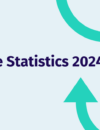
In an era where more people go to university than ever before, it’d be easy to believe that we live in a world of equal opportunity. But the reality is very different – and we all need to pull together to change it.
How our backgrounds influence future earnings
Meet Bina and Jess. Bina is expected to earn an income 200% larger than Jess’s. She isn’t better qualified or experienced (not yet, anyway) – she’s a newborn baby. But her family are well-off, whereas Jess’s is low-income.
That’s how stark the statistics are when it comes to the influence of our backgrounds on our potential future income.
From the moment we’re born, our trajectory into a future career begins. Our upbringing determines where and how often we go to school; how much pressure we’re under to secure an income; and the opportunities we perceive to be open to us.
The bigger picture
A study by NPR found that doctors, executives, and computer programmers were all likely to come from high-income families and earn more than their parents. Meanwhile, those working in the service industry, construction or farming either earned only slightly more than their parents or less.
But this concrete research forms part of a much bigger, trickier to quantify picture.
Bina will likely have the support (both financial and emotional) to pursue higher education, take on unpaid internships and attend endless interviews. Jess, on the other hand, may be under pressure to earn money to support herself and consider university an unaffordable luxury.
Then there’s our aspirations. The offspring of a tech entrepreneur and CEO is likely to aspire to a similar position, and have the opportunities and guidance to get there. In contrast, a child growing up in a low-income household with parents working minimum wage jobs is far less likely to even be aware of such roles, let alone see them as achievable or have the resources or knowledge to reach them.
How to open up opportunities to a range of backgrounds
Fortunately, we are making progress – but it’s slow and needs all our efforts to continue.
Here’s how you can help to open up opportunities to those from a range of backgrounds:
- Start from the beginning; speak at local schools about your business, potential roles and the path to get there
- Be a mentor. Reach Out is one example of an organisation doing great work with young people in disadvantaged communities to help them reach their aspirations
- Offer (paid) apprenticeships to those from disadvantaged backgrounds
- Consider events beyond the likes of university recruitment fairs
- Work with companies like Druthers to shortlist candidates from a broad range of backgrounds.
Get in touch to find out how we can help you build a more diverse and inclusive workplace.





